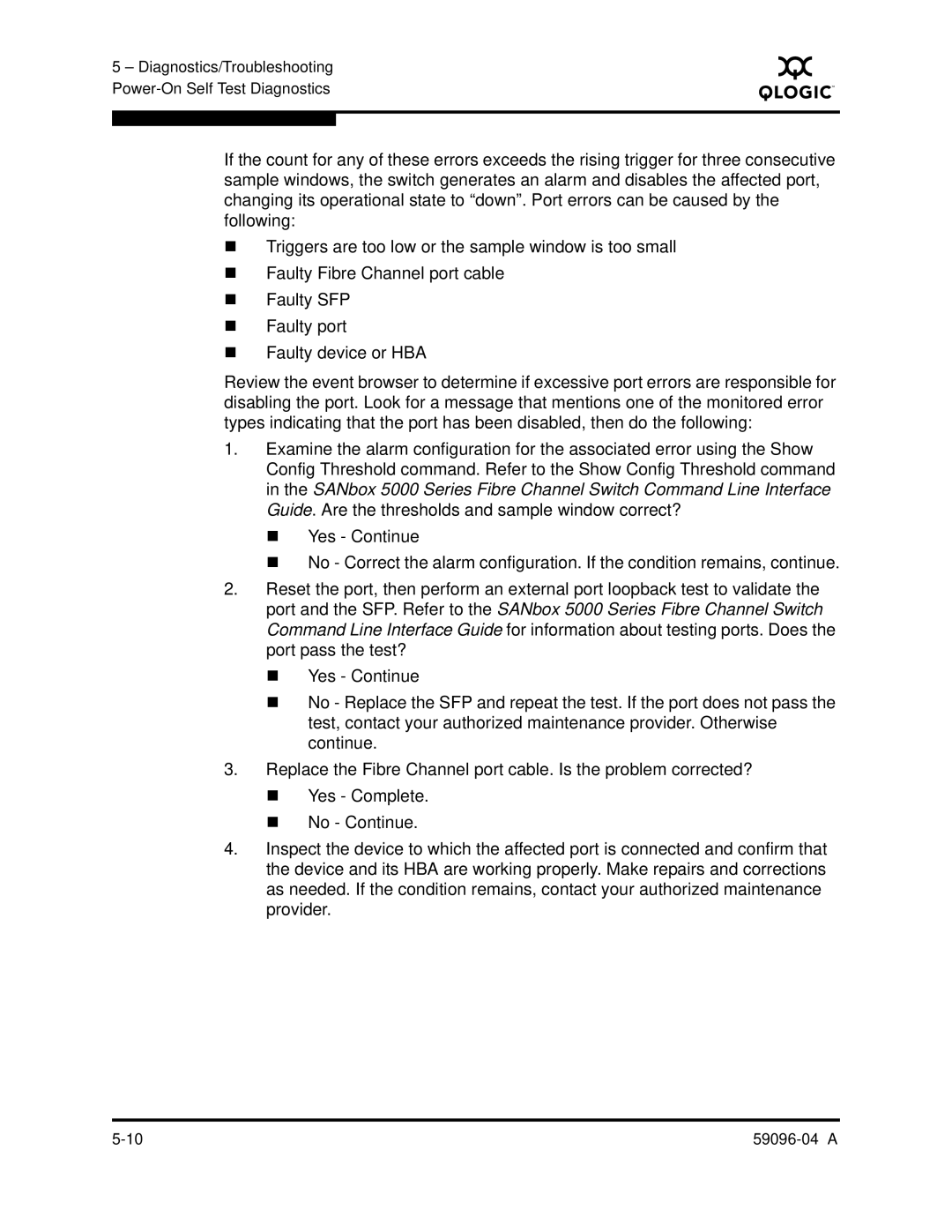
5 – Diagnostics/Troubleshooting Power-On Self Test Diagnostics
S
If the count for any of these errors exceeds the rising trigger for three consecutive sample windows, the switch generates an alarm and disables the affected port, changing its operational state to “down”. Port errors can be caused by the following:
Triggers are too low or the sample window is too small
Faulty Fibre Channel port cable
Faulty SFP
Faulty port
Faulty device or HBA
Review the event browser to determine if excessive port errors are responsible for disabling the port. Look for a message that mentions one of the monitored error types indicating that the port has been disabled, then do the following:
1.Examine the alarm configuration for the associated error using the Show Config Threshold command. Refer to the Show Config Threshold command in the SANbox 5000 Series Fibre Channel Switch Command Line Interface Guide. Are the thresholds and sample window correct?
Yes - Continue
No - Correct the alarm configuration. If the condition remains, continue.
2.Reset the port, then perform an external port loopback test to validate the port and the SFP. Refer to the SANbox 5000 Series Fibre Channel Switch Command Line Interface Guide for information about testing ports. Does the port pass the test?
Yes - Continue
No - Replace the SFP and repeat the test. If the port does not pass the test, contact your authorized maintenance provider. Otherwise continue.
3.Replace the Fibre Channel port cable. Is the problem corrected?
Yes - Complete.
No - Continue.
4.Inspect the device to which the affected port is connected and confirm that the device and its HBA are working properly. Make repairs and corrections as needed. If the condition remains, contact your authorized maintenance provider.
